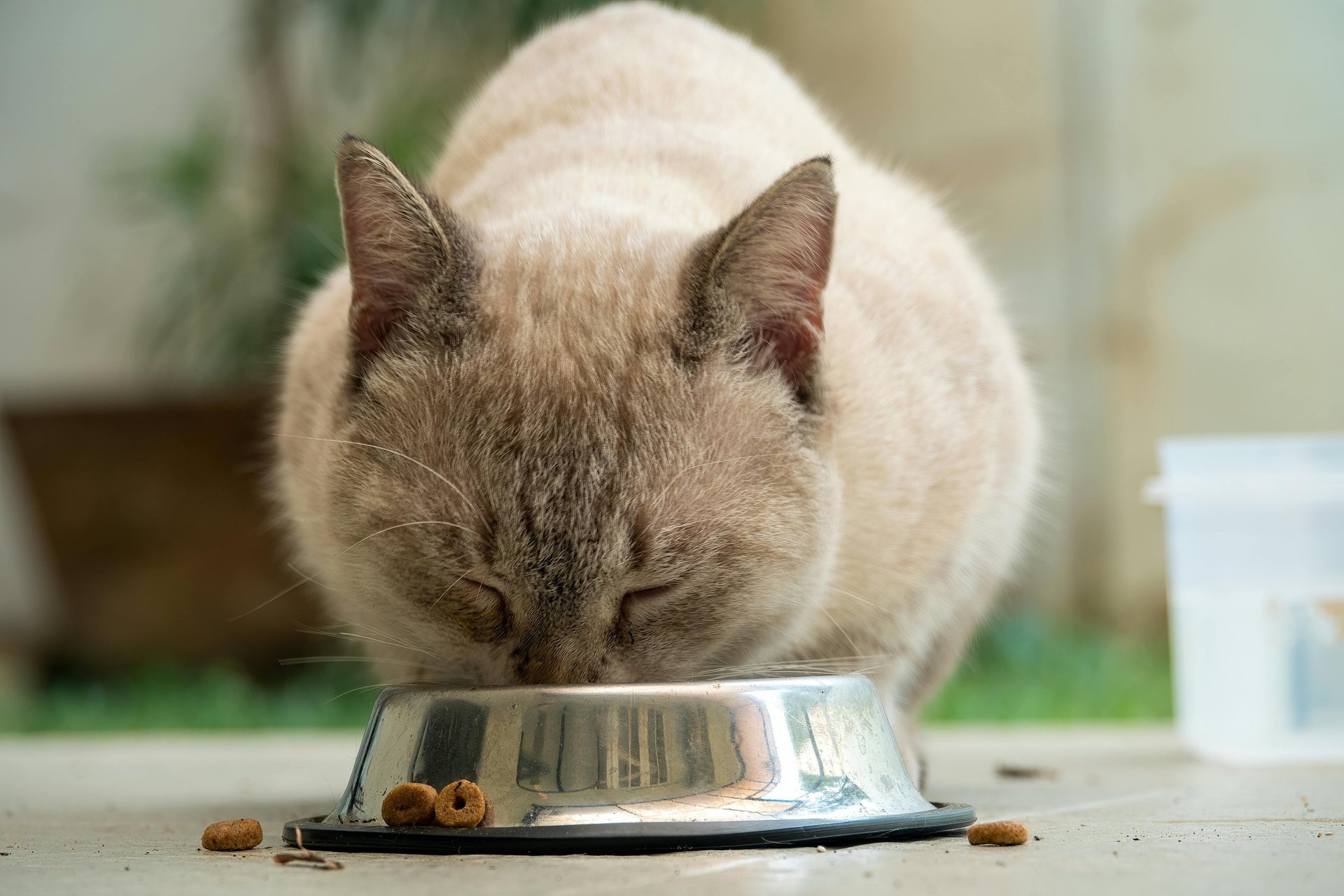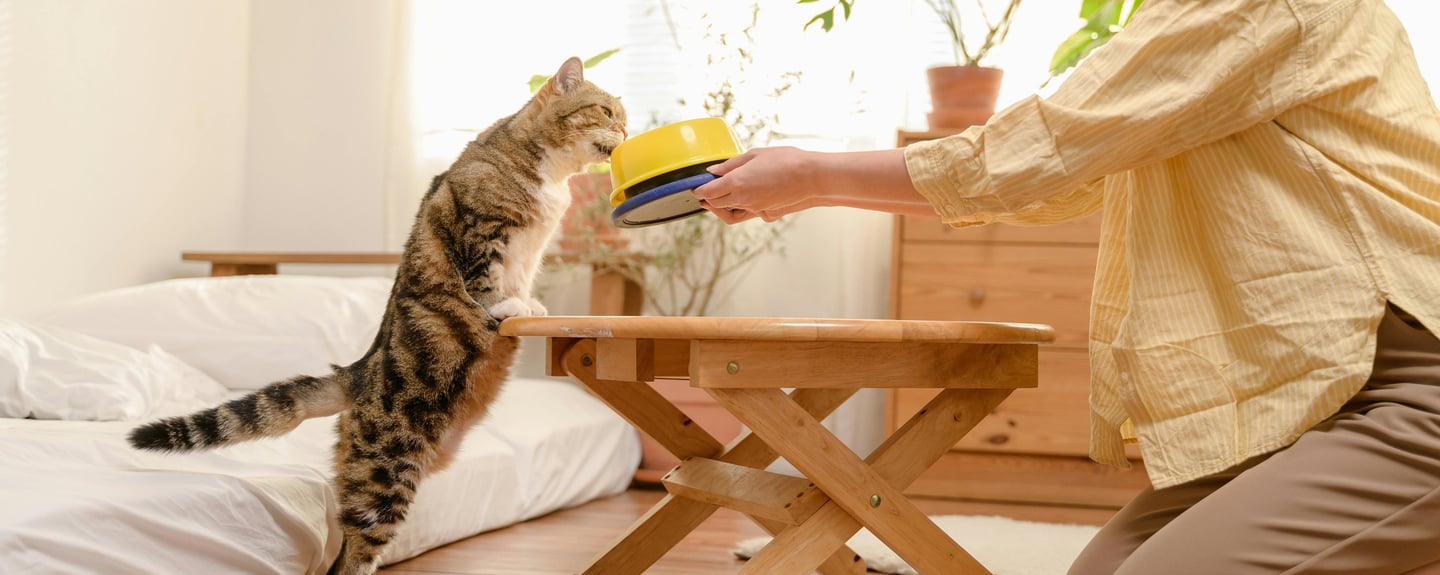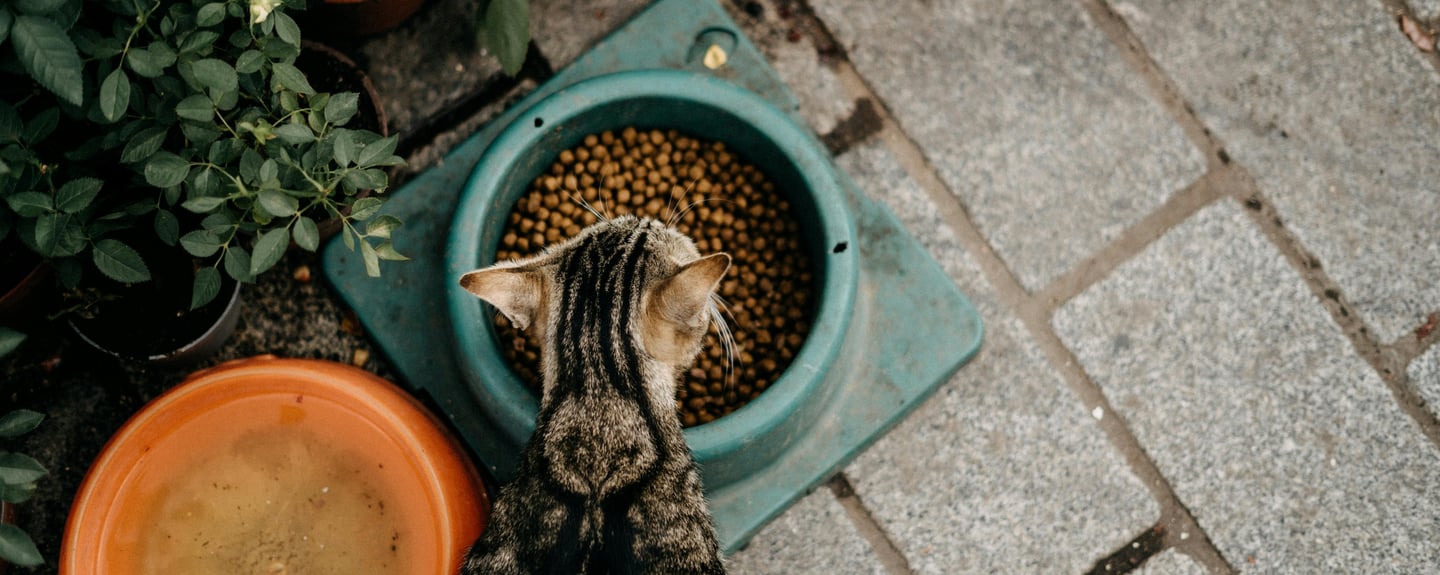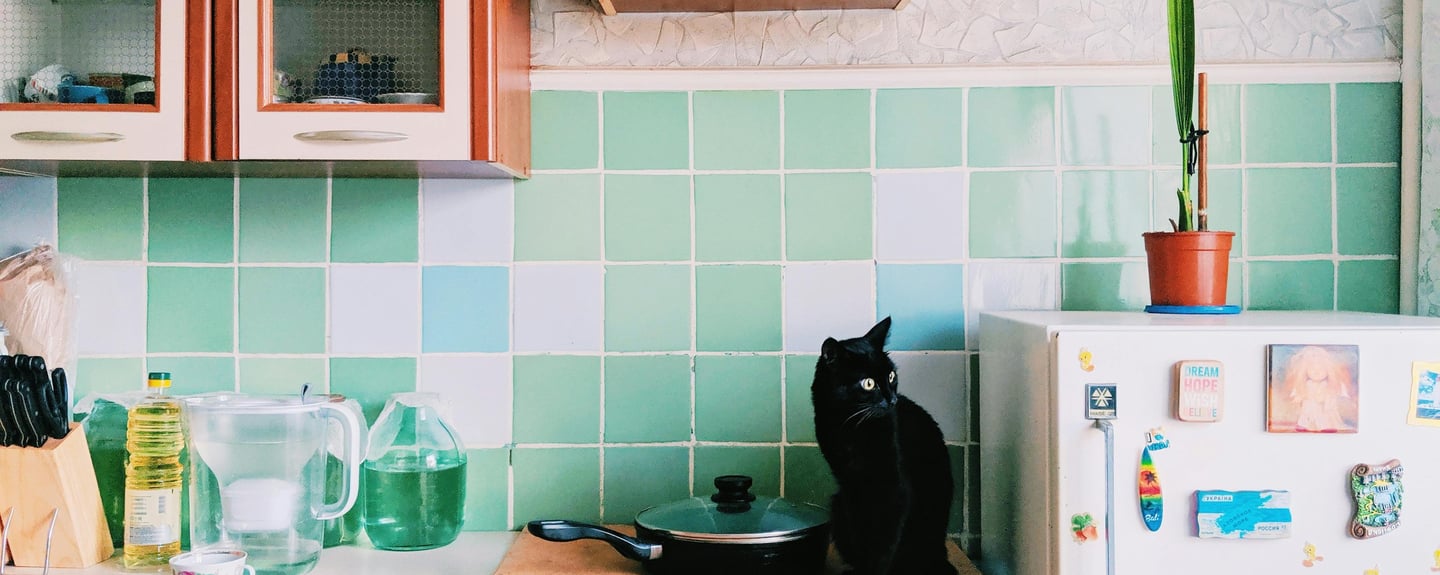Guaranteed Comfort and Complete Care for Your Pet.

Should Cats Eat Wet Or Dry Food: Answers for Dubai Cat Owners


Should cats eat wet or dry food? Many Dubai pet owners ask this while planning daily meals. The answer depends on the cat’s age, health, habits, and daily routine. Hydration also matters, especially for cats living indoors in hot climates. Dubai cat owners often pay attention to moisture intake and food texture. This guide explores the pros and cons of both types. You'll learn about dental health, feeding tips, and signs that suggest a vet visit. If you visit our pet clinic in Dubai, you will be guided to where you can find the best food for your pet. Understanding what your cat needs helps you choose the right mix. Let’s explore what works best for your pet’s well-being.
Benefits of Wet Food for Cats
Wet food provides hydration support, which is especially important in Dubai’s hot and dry weather. Its soft texture helps cats with dental issues or missing teeth. Senior cats often benefit, as chewing becomes easier. Wet food usually smells stronger, which helps encourage picky eaters to finish their meals. It’s often the better choice for cats with urinary problems, low appetite, or those who get constipated easily. For cats showing signs of mouth pain, consult a cat dentist before changing their diet. If you're asking, should cats eat wet or dry food, the answer depends on their daily needs. Always consider your cat’s behavior, health history, and feeding habits before making changes to their food routine.
Cat's who have dental problems will prefer wet food.
Advantages of Dry Food for Cats
Dry food is easy to store, less messy, and works well for cat owners with busy routines. It stays fresh longer than wet food and usually costs less per serving. Many owners prefer it for free feeding since cats can eat throughout the day. Some dry food also helps reduce tartar, which supports oral health over time. Still, regular checkups with a reputable cat vet remain important for preventive care. If you're wondering do cats prefer wet or dry food, the answer varies by taste and habit. Both options have value. Choosing wet food or dry food for cats depends on health goals, eating patterns, and guidance from your vet. Balance matters when planning long-term feeding routines.
What Do Cats Prefer—Wet or Dry Food?
Do cats prefer wet or dry food? Many show a clear preference for wet food due to its rich smell and soft texture. Others enjoy the crunch and feel of dry food, especially if that’s what they ate as kittens. Some cats switch between both depending on mood or routine. Preferences also vary by breed, age, and personality. Certain rare cat breeds may need specific nutrients or feeding patterns, so always check with your vet. The dilemma between wet and dry food often comes down to what keeps your cat healthy and happy. Watch their reactions during meals, and adjust based on appetite, energy levels, and overall comfort with the food offered.


While dry food might be easier to give to your pets, you might want to look into their needs.
Best Practice is Mixing Wet and Dry Food
Mixing wet and dry food can improve balance, variety, and hydration. Many cats enjoy the change in texture and taste. Use wet food as a topper or serve it at specific times. Keep dry food available during the rest of the day, but control portions to avoid weight gain. Dubai stays hot all year, so never leave wet food out for too long. Always refrigerate leftovers and serve in clean dishes. If you’ve wondered, Should cats eat wet or dry food, combining both may offer a practical answer. This method supports health, keeps mealtime interesting, and gives flexibility based on your cat’s routine. Adjust as needed and always watch how your cat responds during and after meals.
When to Talk to a Vet About Your Cat’s Diet
Some cats need a vet’s input to stay healthy. Sudden weight changes, vomiting, or skipped meals shouldn’t be ignored. If you notice discomfort during chewing, check for dental issues. Older cats or those with kidney problems often need diet changes. Indoor cats in Dubai may drink less water due to constant air conditioning. This can lead to dehydration. A reputable cat vet can help decide what and how much to feed your cat. If you're unsure where to start, ask for advice during a routine checkup. Talk to a vet if your cat:
Loses or gains weight without reason
Avoids food or water
Vomits after eating
Struggles to chew or swallow
Acts restless or unusually tired
Drinks too little water in hot Dubai weather
Odd eating habits? You should ask your vet about strange cat behavior for more tips.


Don't forget to keep your open cans of wet cat food in the fridge!
Try New Routines With Your Cat and See Which Ones Work For Your Cat
Should cats eat wet or dry food? The answer depends on your cat’s age, health, lifestyle, and eating habits. Some cats thrive on one type. Others benefit from a mix. Watch how your cat behaves after meals. Look at weight, appetite, and hydration. Dubai owners should also think about heat and indoor living. If you’re unsure, ask your vet or visit a trusted pet clinic in Dubai. We will help you make the right choice for your cat’s needs. For more health tips, browse the care resources at Petland Wellness Dubai or contact us for a consultation. Small changes in diet can lead to better comfort, energy, and well-being. Your cat’s daily meals matter more than you think.
FAQ
Should cats eat wet or dry food every day?
It depends on your cat’s health, age, and preferences. Some cats do well with one type. Others need a mix.
Is dry food bad for cats in hot places like Dubai?
Dry food is fine, but hydration is key. Add wet food or ensure your cat drinks enough water.
Can I mix wet and dry food in the same bowl?
Yes, but monitor portions. Mixing can improve nutrition and taste variety if done correctly.
How do I know if my cat prefers wet or dry food?
Watch their eating habits. Some like the smell and texture of wet food, while others prefer the crunch.
When should I ask a vet about my cat’s food?
See a vet if your cat gains weight, loses appetite, vomits, or shows changes in behavior.

